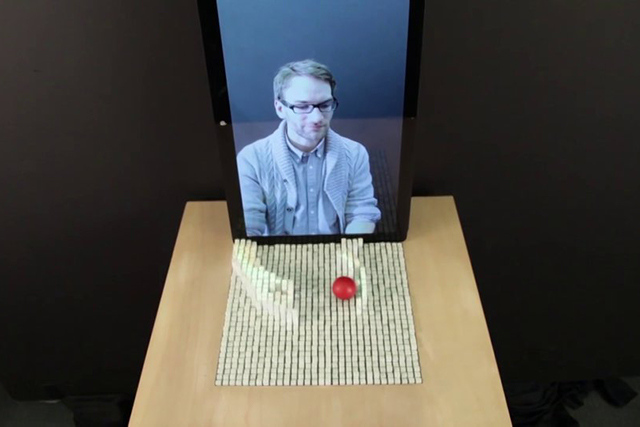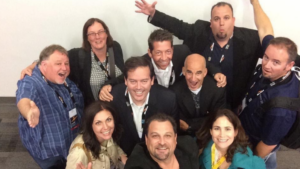We talk all the time about remaining human and authentic; they’re two of the biggest buzz words in 2013. And yet the makeup of the digital spectrum has created shape shifters of all of us, both physically and mentally. As humans, we are built to receive, give and and evolve information. The gravitational pull we’re in is advancing our technology into unfathomable speeds, creating conversations of both excitement and disdain for humans to keep up. And yet, we continue to evolve faster than ever. On some levels, certain technological expectations haven’t been met – like hover boards and flying cars. Yet on other levels, the digital transformation of information is perplexing, how massive it has become.
The next few years are going to bring faster innovations, pulling data into more contextual situations that solve problems in our physical world. How? By leveraging the crowd. It’s the knowledge of many that will innovate us faster to bring hover boards and flying cars into reality.

Shape shifting also applies to the contextual moments we rely on to gather information. You would be surprised to think of Apple’s Siri as a limited database, but it is; this is why it doesn’t always pull the information you need based on what you ask of the technology. However, in Apple’s latest patent application, Siri will be able to reach beyond its available data and take the cumulative thoughts from human interactions across digital and social, and crowd source the information just for you.
So what does this have to do with us moving into 2014? [long, dramatic, epic pause here.] I wish I had the complete answer. But I can say that from a psychological point of view, people are going to have to learn to let go of individual ownership of ideas and rethink how collaborative ideas are monetized.
KEY TAKEAWAY: As the collaborative economy starts to reshape itself into a thriving eco-system, we must also shift away from the “econoME” and into the “Economy of Us.”
If you found any value in this article, it would mean a lot to me for you to share it.





